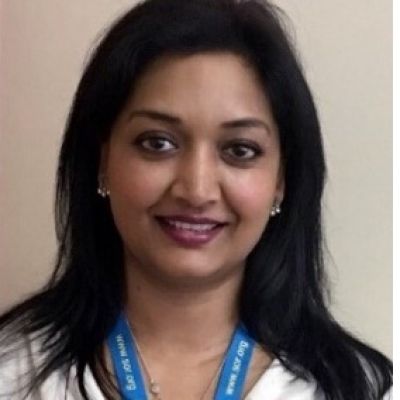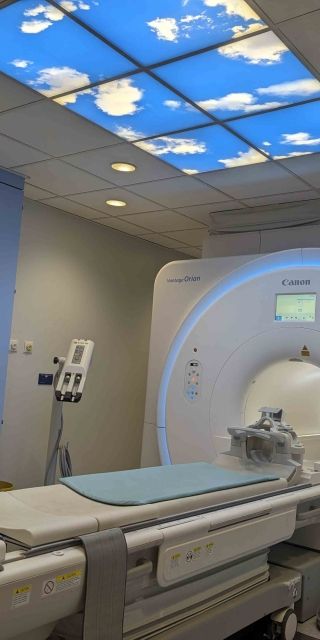
MSc Diagnostic Radiography (Pre-Registration)
- Study Mode: Full Time
- Location: High Wycombe
- Duration: Two Years
- Start Date: January 2025
Working in diagnostic radiography is fun, challenging and full of opportunities. No day is ever the same for a diagnostic radiographer, and you’ll be engaging a wide range of patients throughout your career.
Our course at BNU is a fantastic opportunity for you to become registered with the HCPC and gain work experience in local trusts around Buckinghamshire, Berkshire and Oxford! You’ll master the latest equipment and learn from experienced radiography lecturers. At BNU you’ll find where you belong!
Why study this subject?
As a diagnostic radiographer, you’ll use imaging modalities such as radiography, fluoroscopy, computed tomography, magnetic resonance imaging and ultrasound to produce images to understand and diagnose illness. Diagnostic Radiographers work in fast paced environments using advanced technology, and patient centred care is core.
Based in a hospital, you will work alongside qualified diagnostic radiographers, communicating with patients and building a rapport; your skills will vary depending on your day to day job.
Diagnostic radiography is one of the most modern and innovative disciplines in healthcare, and you will be able to take advantage of using cutting-edge technology as part of your role. Diagnostic radiographers are also key players within a wider healthcare team, and you’ll have the opportunity to work in multidisciplinary teams across various departments.
Diagnostic radiography is an exciting career to enter. It is continually advancing, and new technological developments are ongoing which will offer an exciting future for the profession.
Why study at Buckinghamshire New University?
Developed from professional insight and working experience, the programme has been developed in partnership with our local NHS Trusts. Our MSc Diagnostic Radiography course will equip you with skills in evidence-based practice, research, and leadership. Our programme is led by experienced academic staff and clinicians at the forefront of their subjects whose experience you will benefit from.
BNU provides clinical placements within Buckinghamshire, Oxfordshire and Berkshire areas. Our MSc will put you in good stead to pursue work locally at our trusts, after graduation, should you wish to remain here.
This course is designed for a wide range of applicants. It is a great option for those with degrees in healthcare, science, engineering or medicine who want to move towards a technological and innovative role as part of their master’s study
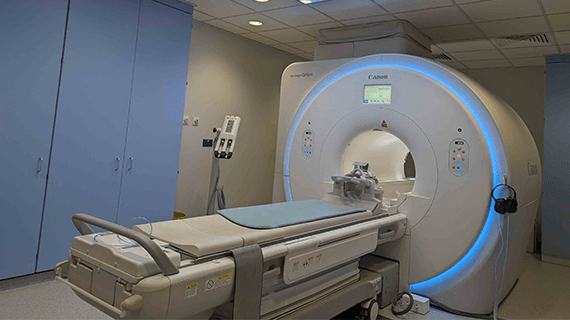
Successful completion of the course provides eligibility to apply for state registration with the Health and Care Professions Council (HCPC) and be professionally recognised by the College of Radiographers to practise in the UK.
What facilities can I use?
BNU offers a unique learning environment at our High Wycombe Campus. We have a number of multi-functional clinical skills suites with a range of equipment to aid your training. As part of our development, we have also invested in Virtual Reality (VR) technology to practise your skills in a simulated environment. Situated in the South Wing, the centralised location of your course will enable collaborative learning opportunities with other healthcare professions programmes including ODP, Physiotherapy and Paramedicine to simulate multidisciplinary team working.
BNU also had close links with High Wycombe Hospital to provide further opportunities for clinical learning. Our library is packed with all the information you need for your assessments, and there’s plenty of room to knuckle down for some quiet study.
We will also sign you up to our Virtual Learning Environment, which means you will have access to lots of online resources wherever you are! In addition, apps anywhere service allows you to access software anywhere including at home.
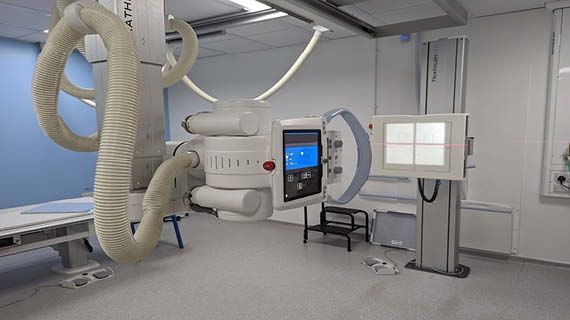
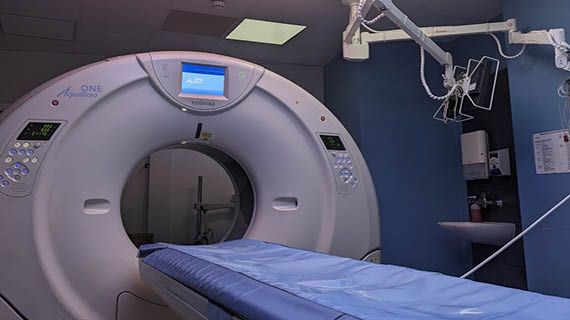
What will I study?
Our teaching is designed to prepare you for clinical practice and encourage your learning.
Some of the topics you will learn about include radiographic anatomy and physiology, applied sciences for radiography, radiation physics, image interpretation and patient care within the scope of radiography.
Our programme uses a modern and innovative integrated blended learning approach, using technology to support face-to-face teaching. Learning activities will focus on clinical skills and problem-based learning, which are further supported by lectures, e-learning, practical sessions, tutorials, and online and face-to-face seminars as appropriate.
This course is perfect for anyone who wishes to leave university fully equipped for a career in radiography, working in the NHS, in private practice or beyond. If you are interested in how medical technology and radiography can help people you will learn about that in detail, with the skills to apply the theory you learn at BNU to a new career in this field.
How will I be taught and assessed?
You will be active participants in the learning process, with your thoughts, ideas, and contributions respected throughout. A variety of assessment methods will be employed to test your knowledge. Some of the ways you will be assessed include:
- written examination
- written coursework
- oral presentations
- viva (oral examination)
- objective Structured Clinical Examinations (OSCE)
- portfolio
- clinical case studies
What are the course entry requirements?
A typical offer includes five GCSEs at grade C or above, including English language or literature, mathematics, and a science subject.
A minimum of 2:1 degree (or equivalent) in a related field. Related degrees include medical, health, sports and science degrees, such as biology, biochemistry, chemistry, and physiology. Other degrees are considered on an individual basis. Advice on equivalent status of overseas awards will be obtained from the National Academic Recognition and Information Centre for the UK (NARIC).
Additionally, practical experience relating to Diagnostic Radiography, such as shadowing, work placement, access to virtual placements or healthcare work experience, will support your application.
Please note we are currently not accepting applications from International students for this course.
Modules
This provides a guide of the modules that make up your course. You can find more information about how your course is structured on our Academic Advice section.
What are the tuition fees
Home
-
Home, Academic Year 2024 - 2025: £9,250 per year
What are my career prospects?
This course will equip you for a career in radiography, with a specific focus on diagnostic radiography. Some of the pathways you could pursue after graduation include:
- working in an NHS setting
- working in private practice setting
- becoming an Advanced Clinical Practitioner or Consultant Practitioner
- management / leadership
- education
- research, doctoral studies
- community settings (diagnostic clinics/hubs)
- armed forces
- commercial / industry sector
Course leader
